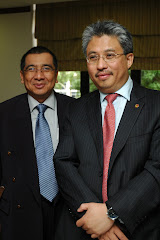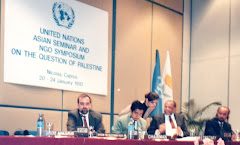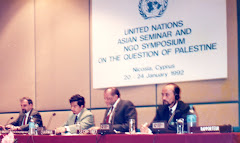Anwar's China policy 13 Feb 2023
By Ngeow Chow Bing
Director, Institute of China Studies, University of Malaya
While it is still unclear if the Anwar Ibrahim administration has a clear China policy in place, the general trajectory is a positive posture towards China. Even so, the relationship can be expanded and strengthened beyond economic numbers to channelling the benefits of cooperation to local SMEs, and broadening cooperation to areas where the prime minister has shown great personal interest, such as inter-civilisational dialogue.
Malaysia witnessed the inauguration of Anwar Ibrahim as the country’s tenth prime minister in November 2022, after the 15th general election. Compared to his two immediate predecessors Muhyiddin Yassin (2020-2021) and Ismail Sabri Yaakob (2021-2022), Anwar certainly has cultivated vastly superior international networks, contacts and exposures. In addition, more than any other active politician in Malaysia, Anwar also enjoys an unrivalled reputation as a globalist intellectual and thinker. There are certainly some high expectations that Anwar Ibrahim will elevate Malaysia’s status and standing in the international community.
That said, the Anwar Ibrahim administration faces a challenging geopolitical environment, especially in the context of the ongoing US-China rivalry. Anwar was queried in his very first press conference as prime minister on Malaysia’s relations with China, in which he described China as a “pivotal” Asian superpower and said: “I would not just leave [Malaysia-China relationship] as it is, but need it to be enhanced.” Anwar has often said that Malaysia is not interested to be drawn into a new Cold War between the US and China. In a Bloomberg interview in February 2023, Anwar reiterated that “overall we want to remain good friends to both [China and the US]”.
Positive posture towards China
So far, Anwar has consistently signalled that Malaysia’s policy posture towards China will be quite positive. In 2023 and 2024, two important anniversaries (tenth anniversary of the comprehensive strategic partnership and 50th anniversary of the establishment of diplomatic ties) will come up as timely opportunities to further generate positive momentums in the bilateral ties. Anwar is also expected to attend the upcoming Third Belt and Road Forum in Beijing, likely to be held sometime later in 2023, while a separate official visit is also in the pipeline.
beyond the positive posture and rhetoric, it is unclear what kind of China policy or strategy is taking shape under the Anwar administration, if any.
However, beyond the positive posture and rhetoric, it is unclear what kind of China policy or strategy is taking shape under the Anwar administration, if any. The Anwar administration is understandably prioritising domestic issues and policies at the moment. Nonetheless, Malaysia can ill afford to overlook the foreign policy dimension, in which China is a particularly crucial aspect.
Anwar’s China policy will necessarily include several dimensions, and will be unsurprisingly heavy on the economy. Here, a strong foundation is already well built. Existing flagship projects such as Malaysia-China Kuantan Industrial Park (MCKIP) and East Coast Rail Link (ECRL) will continue to be the visible manifestations of Malaysia-China economic collaboration. Policy measures formulated by his predecessors, such as the China Special Channel (in 2020) for facilitating high-quality investments from China, will continue. That the Malaysia-China trade registered its highest volume at the end of 2022, at more than US$200 billion, also testifies to the robustness of the trade partnership. With China’s reopening, Malaysia is expecting a return of Chinese tourists, students and investors.
Benefits for local SMEs and widening scope of cooperation
Against this background, what the government needs to think about is not just about boosting the numbers of investment from and trade with China. While these are important, it is also important to think about how the increased activity would benefit and contribute to local welfare. For example, small and medium enterprises (SMEs) in Malaysia often complain that while there are increasing numbers of China-invested projects, opportunities for local SMEs to supply and service these Chinese companies are rather limited. Hence, Malaysia should find ways to encourage the China-invested projects to generate, train and sustain robust local supply networks, which will create spillover effects to the benefits of local SMEs.
Malaysia should pay attention to China’s evolving policies and priorities in foreign economic engagement, which have now broadened to the socioeconomic domains.
Big-ticket projects (in the same vein as the above-mentioned MCKIP and ECRL), however, will be hard to come by, given the costly financial undertaking and the declining appetite for China to provide such kind of financing. Of course, infrastructure cooperation with China cannot be ruled out, especially given the woeful state of infrastructure in certain parts of Sabah and Sarawak. Chinese companies will be welcomed to compete in a transparent and fair manner in any upcoming major infrastructure project. Anyhow, Malaysia should pay attention to China’s evolving policies and priorities in foreign economic engagement, which have now broadened to the socioeconomic domains. Concepts such as Health Silk Road, Green Silk Road and Global Development Initiative complement and extend the original Belt and Road Initiative’s focus on hard projects and infrastructure connectivity, with implications for public health, knowledge transfer, vocational education, capacity building and sustainable development. These are areas that have remained relatively under-explored in Malaysia-China relations.
Inter-civilisational dialogue an area of opportunity
Beyond the economic aspect, Anwar also has a preference to look at Malaysia-China relations through a peculiar “civilisational lens”. Anwar has been a genuine champion for dialogues between different civilisations for decades. Enhancing intellectual and educational exchanges with China hence will be an appealing project for him. Back in the days when he was deputy prime minister, he sponsored the first major conference on Confucian-Islamic dialogue in the country. Anwar will continue to be interested in this kind of dialogues and exchanges, but this needs to be further expanded and deepened. Mutual establishment of chair professors in respective universities (currently there is a vacant chair professorship in Malay Studies at Beijing Foreign Studies University), which could be supported by the private sector, would be one way to do so.
Anwar is likely to maintain the long-established “low-profile” approach to the South China Sea issue, but will remain firm in protecting the country’s claims and interests.
A related imperative is the need to also enhance mutual understanding of not just the respective “civilisations” but the countries themselves, which means a greater focus on strengthening the field of Malaysia Studies in China, and likewise China Studies in Malaysia. Malaysia needs to have more and better expertise to understand contemporary developments in China, and also has an interest in getting China to understand Malaysia better. In this light, it is conceivable that a project to translate and publish selected writings of Anwar in the Chinese language be initiated. Despite Anwar’s reputation as an intellectual, his ideas have actually not been quite well exposed within China.
Sensitive security issues
The most sensitive aspect of the relationship with China is definitely the security dimension, in particular the South China Sea dispute. So far, Anwar has not said much about this issue. His defence minister, when queried on the presence of China’s Coast Guard vessels within Malaysia’s waters, also took a rather cautious note. Anwar is likely to maintain the long-established “low-profile” approach to the South China Sea issue, but will remain firm in protecting the country’s claims and interests. Overall, due to the South China Sea dispute, Malaysia’s level of strategic trust with China has declined, especially since the 2020 West Capella incident and the 2021 Chinese military aircraft incident. Security cooperation with China will be limited and will be primarily based on mutual visits and exchanges. An exception is the Sino-Malaysia joint exercise. Named Aman-Youyi and last held in 2018, the exercise likely will resume either in 2023 or the following year. A breakthrough in the impasse on the South China Sea issue is not expected.
China's Prime Minister Li Keqiang (left) speaks to Malaysia's lower house speaker Azhar Azizan Harun during the East Asia Summit as part of the 40th and 41st Association of Southeast Asian Nations (ASEAN) Summits in Phnom Penh on 13 November 2022. (Tang Chhin Sothy/AFP)
But if Anwar, and his foreign minister, are bold enough, Malaysia may want to relook into the practically-defunct bilateral consultation mechanism between China and Malaysia that was reportedly set up in 2019. This mechanism was similar to the one between China and the Philippines, but it was never implemented and was quite resisted by the diplomatic and security establishment in Malaysia, with a view that it would compromise Malaysia’s interests. Nevertheless, with some creativity and boldness, the mechanism could be repackaged and redesigned into a regular channel of maritime dialogue and consultation where practical cooperation can be jointly discussed and consensus forged. This would go a long way in managing the South China Sea issue.
Finally, the core impetus of Malaysia’s China policy should be something more fundamental and goes beyond the transactional. The bilateral collaboration with China is both an end for the purpose of national interests and mutual interests, and also a means to an end, which is to foster integration of China in an inclusive order for the sake of regional peace and stability. To a certain extent, managing the relationship with China also means managing the relationship with the West, especially the US. It is crucial that Malaysia’s China policy is not being misunderstood simplistically as “pro-China” within a binary or polarised framework, or as being opportunistic in trying to exploit the opportunities arising from the great power competition.
Malaysia is not unaware that China has the potential to become a destructive power, and has manifested certain coercive or disruptive tendencies in the past. Malaysia rightly seeks diversification and various partnerships in its foreign policy outreach, partly to hedge against a potentially hegemonic China. However, successive generations of Malaysian leaders and political elite, including Anwar, believe that to encourage China to remain a constructive power, the best policy is to integrate China in an inclusive order, rather than deterministically designating it as a rival or threat, which could in turn be a self-fulfilling prophecy. Anwar has long been an advocate for democratic values, but he will not entertain notions of “democracy versus autocracy” in his foreign policy, as such exclusivist targeting of others (especially China) will only be counterproductive. Engagement with China, bilaterally and also within regional multilateral frameworks such as ASEAN, incentivises China to remain a cooperative partner and constructive power, notwithstanding the difficult aspects in the relationship.















































No comments:
Post a Comment